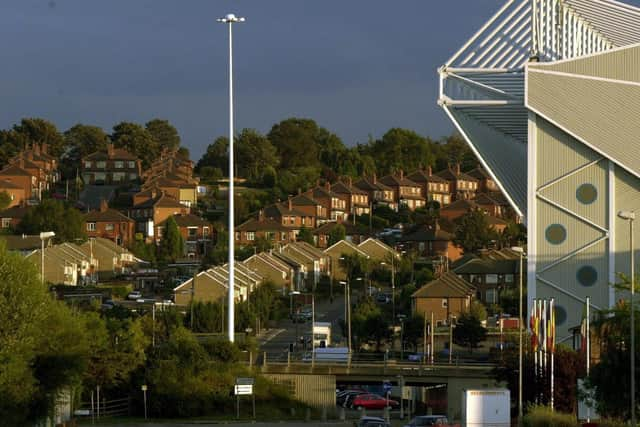Premier League, Bundesliga and La Liga matches were analysed during Covid and University of Leeds researchers found empty stadiums halved the home advantage
and live on Freeview channel 276
Home advantage describes the benefit a sports team playing at their own venue is said to enjoy over the visiting team.
This could be down to the effect of fans on the players or referee, playing in familiar surroundings and the effects of travel on the visiting team.


Advertisement
Hide AdAdvertisement
Hide AdBut the new study, by the University of Leeds and Northumbria University, used the unique opportunity presented by the Covid pandemic to test whether home advantage applies when fans are not in the ground.
They found that home teams won significantly fewer points and scored fewer goals.
With fans present, teams won 0.39 points more per game at home than away, but with fans absent, the advantage was almost halved when teams won only 0.22 points more at home than away,
And with fans present, home teams scored 0.29 goals more per game than away team, but when stadiums were empty, home teams scored just 0.15 goals more than the visitors.
Advertisement
Hide AdAdvertisement
Hide AdThe data also showed that referees gave more fouls against the home team in empty stadiums, gave a similar number of fouls against the away team in empty stadiums and gave far fewer yellow cards against away teams in empty stadiums.
Lead author Dane McCarrick, from the University of Leeds’ School of Psychology, said: “Covid-19 forced football at all levels to an unexpected halt just a quarter of the way through the 2019/2020 season.
“When it returned, the remainder of the games took place behind closed doors with no fans present.
"This provided an unintentional, and unique, opportunity to examine one of the most talked about and empirically studied phenomena in professional team sport: the home advantage.
Advertisement
Hide AdAdvertisement
Hide Ad“This new knowledge reveals that in the most basic sense, fans attendance matters.”
Researchers analysed 4,844 games across 11 countries, including the England Premier League and Championship, Germany Bundesliga 1 and 2, Spanish La Liga 1 and 2, Italian Serie A and B, Portuguese Primeira Liga, Greek Super League, Turkish Super Lig, Austrian Bundesliga, Danish Superligaen, Russian Premier League and Swiss Super League.
Dr Sandy Wolfson, a sport and exercise psychologist from Northumbria University’s Department of Psychology, worked with Mr McCarrick on this study.
She said: “This is a really important investigation that contributes to the long-standing debate on the main reasons for the home advantage in sport - a worldwide phenomenon affecting team sports at all levels, from recreational to elite."
